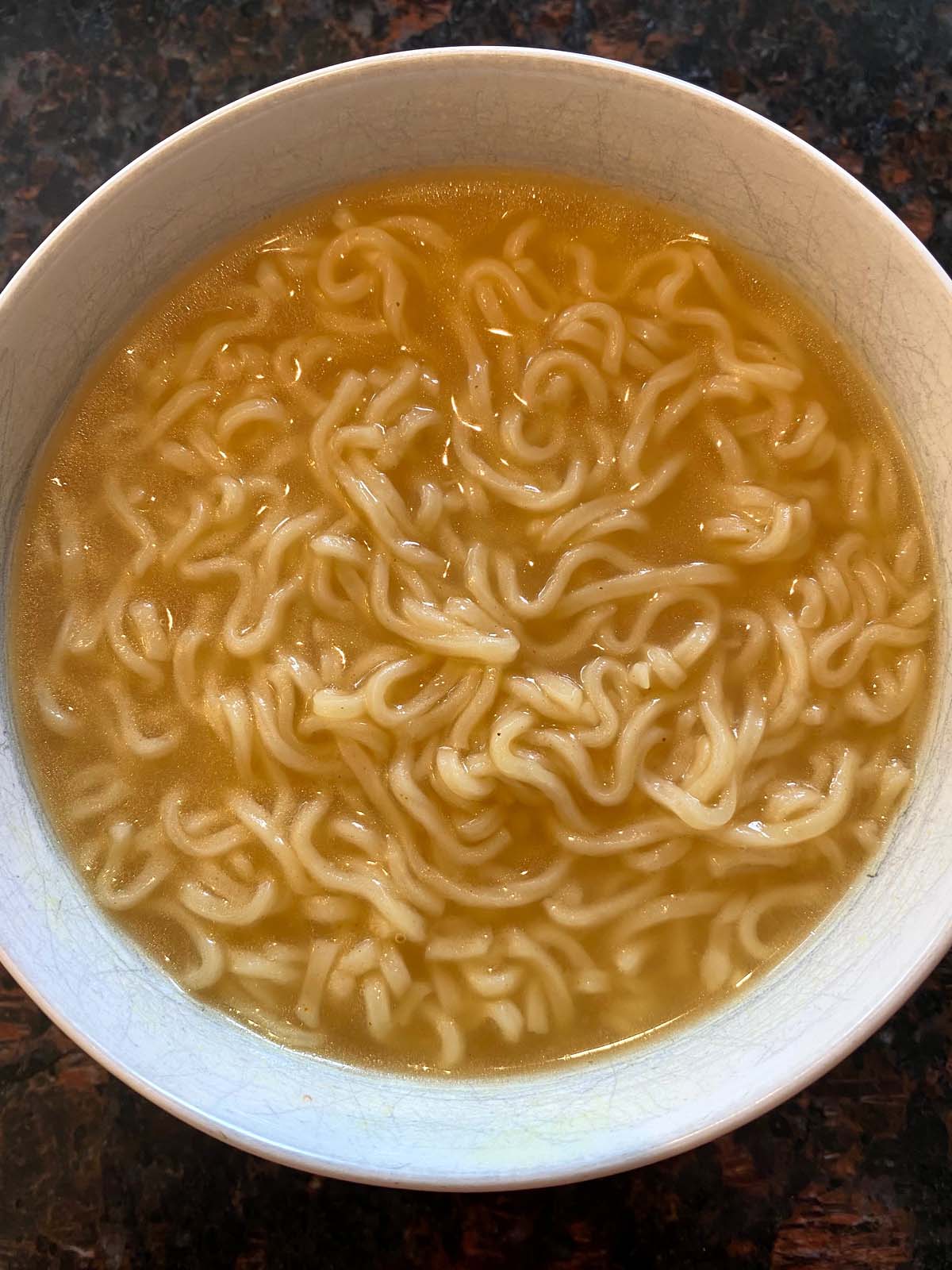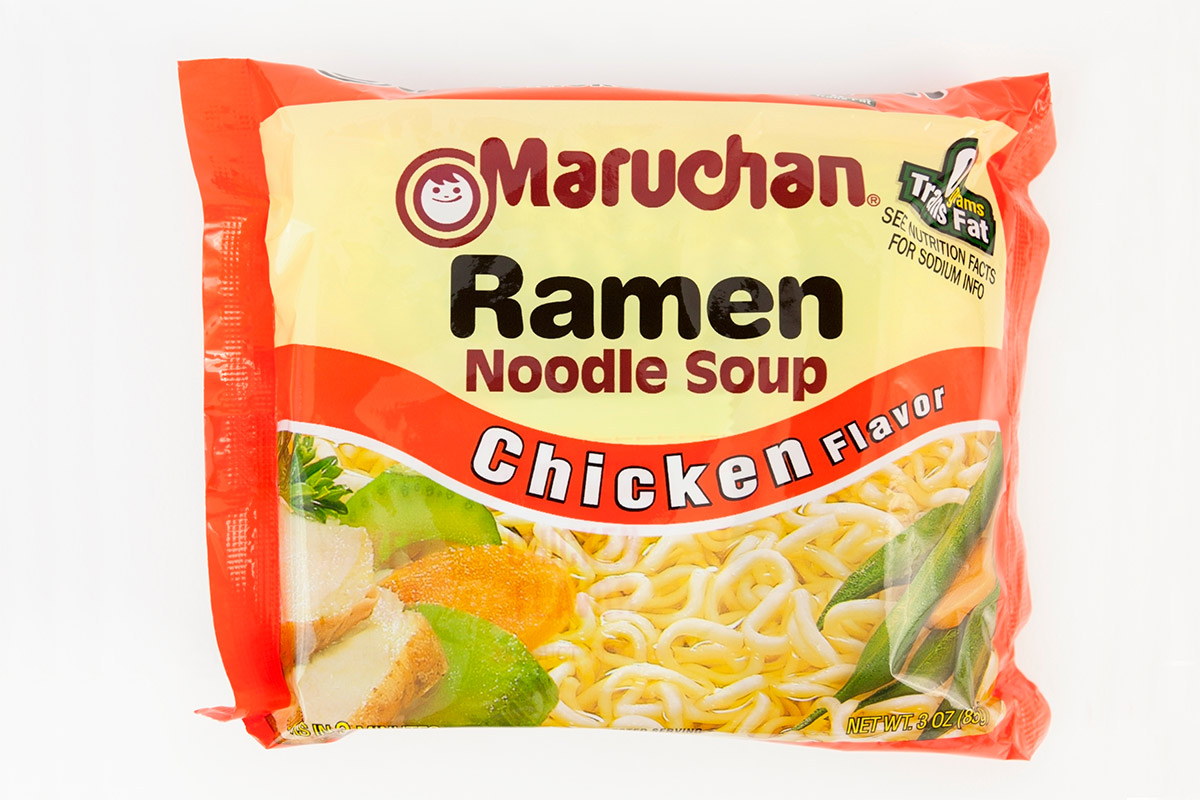Ramen Noodles Recall: Understanding The Issue And Its Implications
Ramen noodles recall is a topic that has gained significant attention in recent years as consumers become more aware of food safety and quality standards. This issue affects millions of people worldwide who rely on instant noodles as a quick and affordable meal option. Understanding the reasons behind these recalls and their implications is crucial for ensuring the safety of the food we consume daily.
Instant noodles, particularly ramen, have become a staple in many households due to their convenience and affordability. However, recent incidents of ramen noodles recall have raised concerns about the safety and quality of these products. In this article, we will explore the reasons behind these recalls, the potential health risks, and what consumers can do to protect themselves.
Our goal is to provide comprehensive insights into the issue of ramen noodles recall, ensuring that you are well-informed and equipped to make better decisions regarding your food choices. By understanding the background and the contributing factors, we can better navigate the complexities of food safety in today's global market.
Read also:Girls And The Gays The Impact Of Colemanrsquos Advocacy On Lgbtq Communities
Table of Contents
- Introduction to Ramen Noodles Recall
- Causes of Ramen Noodles Recall
- Health Risks Associated with Recalled Products
- Regulatory Actions and Standards
- Consumer Responsibility in Food Safety
- A Brief History of Ramen Noodles Recalls
- Prevention Strategies for Manufacturers
- Case Studies of Notable Ramen Noodles Recalls
- Global Impact of Ramen Noodles Recall
- Future Directions in Food Safety
Introduction to Ramen Noodles Recall
Ramen noodles recall occurs when a product is identified as unsafe for consumption due to contamination, mislabeling, or other issues. This process is critical for protecting public health and maintaining consumer trust in food products. The recall process involves identifying the problem, notifying consumers, and removing the affected products from the market.
Recent cases of ramen noodles recall have highlighted the importance of robust quality control measures in the food industry. Manufacturers are under increasing pressure to ensure that their products meet stringent safety standards. This section will delve into the reasons behind these recalls and the steps taken to address them.
Why Ramen Noodles Are Frequently Recalled
Ramen noodles are often recalled due to contamination with harmful substances such as bacteria, chemicals, or allergens. Additionally, mislabeling or incorrect ingredient listings can lead to recalls, particularly when allergens are not properly disclosed. These issues can arise from manufacturing errors, supply chain problems, or inadequate quality control measures.
Causes of Ramen Noodles Recall
Understanding the causes of ramen noodles recall is essential for addressing the root issues and preventing future incidents. Several factors contribute to these recalls, including contamination, manufacturing defects, and labeling errors.
Common Contaminants in Ramen Noodles
- Bacterial contamination, such as Salmonella or E. coli
- Chemical contaminants, including pesticides or preservatives
- Foreign objects, such as metal fragments or plastic pieces
Manufacturers must implement rigorous testing protocols to detect and eliminate these contaminants before products reach consumers.
Health Risks Associated with Recalled Products
Consuming recalled ramen noodles can pose significant health risks to individuals, especially those with compromised immune systems or allergies. Bacterial contamination can lead to foodborne illnesses, while chemical exposure may result in long-term health effects.
Read also:Vickie Guerrero A Comprehensive Look At Her Impactful Journey
Symptoms of Foodborne Illnesses
- Nausea and vomiting
- Diarrhea and abdominal cramps
- Fever and fatigue
It is crucial for consumers to be aware of these symptoms and seek medical attention if they suspect they have consumed contaminated food.
Regulatory Actions and Standards
Governments and regulatory bodies play a vital role in ensuring food safety through the enforcement of strict standards and guidelines. Agencies such as the FDA in the United States and the EFSA in Europe monitor food products and initiate recalls when necessary.
Key Regulatory Bodies
- Food and Drug Administration (FDA)
- European Food Safety Authority (EFSA)
- World Health Organization (WHO)
These organizations work collaboratively to establish global standards for food safety and address emerging threats.
Consumer Responsibility in Food Safety
Consumers also have a responsibility to ensure the safety of the food they consume. Staying informed about recalls and checking product labels for potential allergens or contaminants is essential for protecting oneself and one's family.
Tips for Consumers
- Regularly check official recall notices from regulatory agencies
- Inspect product labels for allergen warnings and ingredient lists
- Store and prepare food according to recommended guidelines
By taking these proactive steps, consumers can reduce their risk of exposure to unsafe food products.
A Brief History of Ramen Noodles Recalls
Ramen noodles recall incidents have occurred globally over the past few decades, with notable cases in countries such as Japan, South Korea, and the United States. These incidents have prompted manufacturers to improve their quality control processes and adopt more stringent safety measures.
Notable Recalls in History
In 2015, a major ramen noodles manufacturer issued a recall due to the presence of a harmful chemical in their products. This incident led to widespread media coverage and increased public awareness of food safety issues. Subsequent investigations revealed that inadequate quality control measures were a contributing factor.
Prevention Strategies for Manufacturers
To prevent future ramen noodles recall incidents, manufacturers must implement comprehensive prevention strategies. These include enhancing quality control systems, conducting regular inspections, and investing in employee training programs.
Best Practices for Manufacturers
- Implement Hazard Analysis and Critical Control Points (HACCP) systems
- Conduct regular audits and inspections of production facilities
- Train employees on food safety protocols and procedures
By adopting these practices, manufacturers can significantly reduce the likelihood of contamination and improve overall product safety.
Case Studies of Notable Ramen Noodles Recalls
Examining specific case studies provides valuable insights into the causes and consequences of ramen noodles recall incidents. One such case involves a major brand that issued a recall after discovering the presence of a banned chemical in their products.
Case Study: Chemical Contamination in Ramen Noodles
In this case, the manufacturer failed to detect the chemical during routine testing, leading to widespread distribution of the contaminated product. The recall resulted in significant financial losses for the company and damage to its reputation. This incident underscored the importance of robust quality control measures in preventing similar occurrences.
Global Impact of Ramen Noodles Recall
The global impact of ramen noodles recall extends beyond individual consumers and manufacturers. These incidents can affect entire industries, leading to economic losses, trade restrictions, and decreased consumer confidence. International cooperation and information sharing are essential for addressing these challenges effectively.
Challenges in Global Food Safety
Key challenges in global food safety include harmonizing regulations across countries, ensuring transparency in supply chains, and addressing emerging threats such as climate change and antibiotic resistance. Collaborative efforts between governments, industry stakeholders, and consumers are necessary to overcome these challenges.
Future Directions in Food Safety
Looking ahead, advancements in technology and innovation offer promising solutions for improving food safety. Technologies such as blockchain, artificial intelligence, and rapid testing methods can enhance traceability, detection, and prevention of contamination in food products.
Innovations in Food Safety
- Blockchain for supply chain transparency
- AI-powered predictive analytics for contamination detection
- Rapid testing methods for on-site analysis
By embracing these innovations, the food industry can take significant strides toward ensuring the safety and quality of products like ramen noodles.
Conclusion
In conclusion, ramen noodles recall is a critical issue that demands attention from manufacturers, regulators, and consumers alike. Understanding the causes, health risks, and prevention strategies associated with these recalls is essential for safeguarding public health and maintaining consumer trust. By staying informed and taking proactive steps, we can contribute to a safer and more secure food supply chain.
We encourage you to share this article with others and explore related content on our website for more insights into food safety and quality. Together, we can make a difference in promoting safer food choices for everyone.
Cleveland Craigslist: Your Ultimate Guide To Finding Deals And Opportunities
Kim Young Kardashian: A Rising Star In The Kardashian Empire
NaughtyAmerica: Your Ultimate Guide To Adult Entertainment

Ramen Noodles Soup Cups Recalled Due to Fire and Burn Risks Daily Recall

Maruchan Ramen Noodles Recall 2024 Cammi Marcellina

Maruchan Ramen Noodles Recall 2024 Recall Cynde Dorella